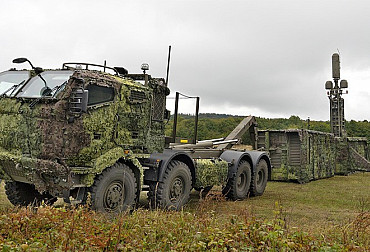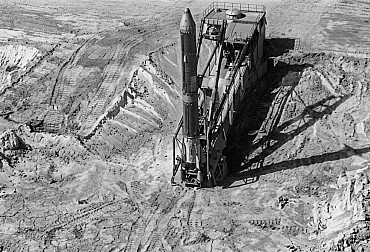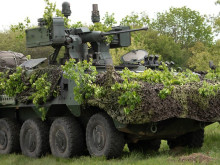Geopolitical anchoring of the Czech Republic in a new era: Foreign Policy Concept 2025
The new Concept of the Foreign Policy of the Czech Republic published on May 29, 2025, emphasizes the geopolitical anchoring of the state in a changing world order. The document reveals a strategic shift: Prague no longer bases its international position primarily on the promotion of democratic values, but on ensuring its own security and defense capabilities in a context of growing global competition.

Geopolitical orientation has become a central theme of this year's updated Concept of the Foreign Policy of the Czech Republic (hereinafter referred to as the “Concept”). The document provides a detailed description of strategic threats, which are not limited to the military dimension but also include economic, technological, and environmental challenges. The Concept mentions the need for multidimensional diplomatic activity, which must be based on estimates of foreign policy developments and targeted cooperation across various areas of human activity.
The May document reflects the fundamental change in the European security environment, which was fundamentally redefined by Russia's aggression against Ukraine in February 2022. Russia has earned the label of a "revisionist state" whose actions are undermining the post-war international order. This fact is also reflected in the Czech Republic's earlier Security Strategy, which explicitly identifies Moscow as the most serious security threat to Czech interests. This has several specific consequences for Prague, such as the need to provide the most extensive and effective support possible to Kyiv. Only in this way can the Czech Republic demonstrate its commitment to a rules-based world order and contribute to deterring Russia from further westward expansion.
According to the Concept, the fundamental pillar of Czech foreign policy remains the transatlantic partnership based on NATO membership and strategic cooperation with the United States. In case of danger, Prague relies on Article 5 of the North Atlantic Treaty and the assistance of its allies. In the context of developments in US foreign policy and a possible reduction of the US military presence in Europe, the Czech Republic considers it important to strengthen EU security policy without undermining transatlantic unity. The Czechs actively participate in alliance military exercises and European projects for the development of defense technologies with the aim of achieving technological autonomy.
Another key point is the increased importance of NATO's eastern flank, where the Czech Republic is strengthening its presence through alliance missions and bilateral cooperation (for example, with the Baltic states and Poland). This is linked to increased military spending and the modernization of the Czech Armed Forces as a national contribution to the alliance's deterrence, as outlined in the Czech Defense Strategy 2023. The Czech Republic is also strengthening its diplomatic presence in Eastern Europe and participating in reconstruction projects in Ukraine. In this way, it is consolidating its role as an active member of the international coalition for the defense of the European security architecture.
Foreign trade is also an important part of the Czech Republic's geopolitical strategy. The Czech economy is heavily dependent on exports, with the European Union (especially Germany, Poland, and Slovakia) remaining key export markets. Foreign policy therefore aims to actively protect and promote an open, stable, and predictable international order. Trade is not only an economic agenda, but also a tool for influencing the external environment. Strengthening trade ties with democratic and reliable partners also serves as a means of reducing dependence on risky markets, including China and Russia.
Foreign trade is also linked to the protection of the European single market and the resilience of supply chains. The Czech Republic is interested in reforming and streamlining the work of the World Trade Organization, building economic partnerships with democratic states, and coordinating the European position on trade with third countries. However, a strong European Union requires strengthening security and economic sovereignty and gaining strategic autonomy in critical industrial areas such as energy production and semiconductors.
From a geopolitical perspective, Prague has long been interested in developments in the EU's immediate neighborhood, particularly in the Western Balkans and Eastern Europe (Armenia, Georgia, Moldova, Ukraine). The concept explicitly supports their rapprochement with the EU, which it also sees as a means of preventing the strengthening of China and Russia. Czech diplomacy uses a combination of soft power, development cooperation, and expert assistance with the support of European structures. It pays particular attention to extending EU integration and transformation instruments to these regions, including support for civil society, the rule of law, and strengthening the resilience of democratic institutions. The Czech Republic presents itself in this region as a trustworthy European partner with experience from its own transformation.
A significant new feature of the Concept is the Indo-Pacific region, a strategic area associated with dynamic growth but also a number of risks. In this part of the world, we can observe global rivalry almost in real time. China's assertiveness in the East China Sea and South China Sea, the threat of conflict in the Taiwan Strait, and Beijing's efforts to control technology and raw material chains are putting pressure on democratic states in the region. Partnerships with democratic actors such as Australia, India, Japan, and South Korea are crucial for the Czech Republic from both a values-based and an economic perspective.
This effort reflects a broader strategy of reducing dependence on authoritarian powers and diversifying trade and security partnerships (as also emphasized in the Security Strategy). The geopolitical orientation towards the Indo-Pacific shifts Czech diplomacy to the center of the stage, but at the same time underscores the need to complement this ambition with expanded institutional capacities. The Czech Republic is also seeking ways to participate in regional multilateral initiatives (Indo-Pacific Economic Framework, ASEAN, and others) that may influence the future dynamics of global development.
In Europe's southern neighborhood, the Concept identifies the most important destabilizing factors. In addition to the collapse of state administration in Libya and Sudan, it mentions radicalization and terrorism in the Sahel, the instrumentalization of migration (for example, by Belarus or Turkey), and energy dependence. For Czech foreign policy, this means two main priorities: first, supporting stabilization through development and humanitarian policy, and second, protecting European borders and preventing new migration crises. Czech diplomacy is relying on initiatives by international organizations (the EU and the UN), but it is also increasingly supporting involvement in smaller projects that have a direct impact on the Czech Republic's security interests. At the same time, there is a growing emphasis on cooperation with regional actors such as the African Union and the Gulf Cooperation Council, and on building long-term partnerships in the areas of climate security and the development of resilient infrastructure.
According to a May document from the Ministry of Foreign Affairs, the continents of Africa and Latin America are growing in geopolitical importance. This is mainly due to the struggle for raw materials and access to natural resources, the influence of authoritarian powers (namely China and Russia), and vulnerability to destabilization as a result of political instability or religious radicalization. The Czech Republic can play a role here as both a donor and a partner for modernization, digitization, and education. A stronger diplomatic presence in these regions could increase the geopolitical importance of Czech diplomacy. In Latin America, opportunities are opening up in the field of scientific and technological cooperation, particularly in the areas of sustainable energy, digitalization, and educational exchanges. These activities can strengthen mutual understanding and pave the way for alliances beyond the traditional frameworks of European and transatlantic policy.
Czech foreign policy considers contemporary geopolitical rivalry to be a key factor in its security policy. Prague responds to this rivalry by deterring and defending itself against revisionism on the part of China and Russia. The Czech Republic intends to strengthen its resilience through partnerships with democratic countries that share its values, diversification of economic and technological ties, and an active presence in neighboring and more distant strategic areas. In the latter category, the Czech Republic can draw on its experience of transformation from a former Eastern Bloc country to a full member of the Euro-Atlantic space. Thanks to this history, Prague can more easily gain the trust of countries that are currently seeking a similar change in their geopolitical anchoring.



















